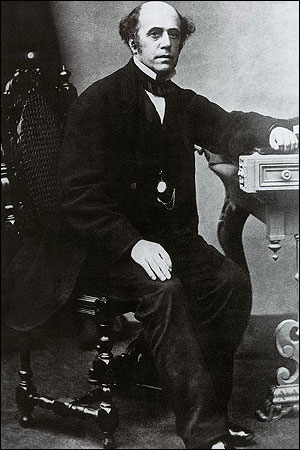I live in London, UK 🏡
In the earliest times, people have travelled on foot to hunt, explore or make pilgrimages. Food, water, safety or acquisition of resources (trade) were the early travel motivations . The invention of the wheel and the sail provided new modes of transportation. Each improvement in technology increased individuals' opportunities to travel. When roads were developed and railway networks spread across the countries, tourism started to flourish.
In 1822, Robert Smart of Bristol, England, announced himself as the first steamship agent. He began booking passengers on steamers to various Bristol Channel ports and to Dublin.
 In 1841, Thomas Cook began running a special excursion train from Leicester to Loughborough in England which happened to be a trip of 12 miles. On the 5th of July in 1841, Cook’s train carried 570 passengers at a round-trip with a price of 1 shilling per passenger. This is believed to be the first publicly advertised excursion train. Thus, Thomas Cook can rightfully be recognized as the first rail excursion agent. His pioneering efforts were eventually copied widely in all parts of the World. Cook’s company grew rapidly, providing escorted tours to the Continent and to the United States and around the World.
In 1841, Thomas Cook began running a special excursion train from Leicester to Loughborough in England which happened to be a trip of 12 miles. On the 5th of July in 1841, Cook’s train carried 570 passengers at a round-trip with a price of 1 shilling per passenger. This is believed to be the first publicly advertised excursion train. Thus, Thomas Cook can rightfully be recognized as the first rail excursion agent. His pioneering efforts were eventually copied widely in all parts of the World. Cook’s company grew rapidly, providing escorted tours to the Continent and to the United States and around the World.
But the first specialist in individual inclusive travel (the basic function of travel agencies) was probably Thomas Bennett (1814 - 1898) who was another Englishman serving as secretary to the British consul-general in Oslo, Norway. In this position, he frequently arranged individual scenic tours in Norway for visiting British notables. Finally, in 1850, he set up a business as a ‘trip organizer’ and provided individual tourists with itineraries, carriages, provisions and a travel kit. He routinely made advanced arrangements for horses and hotel rooms for his clients.
After World War II, the availability of airplanes was the messenger of the start of charter flights. In the 1970s, the introduction of wide-bodied jets meant that journeys to the USA and the Far East came with the reach of many people.
Tourism has also expended as people’s leisure time has increased. In the 1700s, leisure time was available only to the richer people. Indeed, they were sometimes referred to as the ‘Leisure Classes’. At the beginning of the 20th Century, bank holidays were introduced and in the 1930s, paid holiday time was more widely available. In the second half of the 20th Century, paid holidays were excepted as a norm and package holidays were within the reach of most people.
People become tourist for variety of reasons. Those reasons were limited at the earlier times but with the variety of services and thanks to good management thoughts of the professionals, those reasons increased a lot. Some of them are ;
That list could be expended. Also that list entirely point that out, there is big misunderstanding out there in the world about tourism industry : Tourism is only about leisure holidays.
 Nowadays travel agencies range from very small to very large businesses. The smaller businesses are very much like any other small business. Very few people carry out all the business operations, and jobs include secretarial, travel counseling and managerial activities. In large offices job opportunities are more varied and include commercial account specialist, domestic and international travel counselors, research directors and marketing managers. Of course, the main marketing area of a travel business is the internet in current times. Thus, large firms are having their own IT departments, even a Social Media Departments separately from others to handle all the communication between the company and clients. Tour operators are in need of those kind of departments separately more than travel agencies.
Nowadays travel agencies range from very small to very large businesses. The smaller businesses are very much like any other small business. Very few people carry out all the business operations, and jobs include secretarial, travel counseling and managerial activities. In large offices job opportunities are more varied and include commercial account specialist, domestic and international travel counselors, research directors and marketing managers. Of course, the main marketing area of a travel business is the internet in current times. Thus, large firms are having their own IT departments, even a Social Media Departments separately from others to handle all the communication between the company and clients. Tour operators are in need of those kind of departments separately more than travel agencies.
[Some of the content of this article has been quoted from the Birgitta Wagner’s textbook of Travel & Tourism]